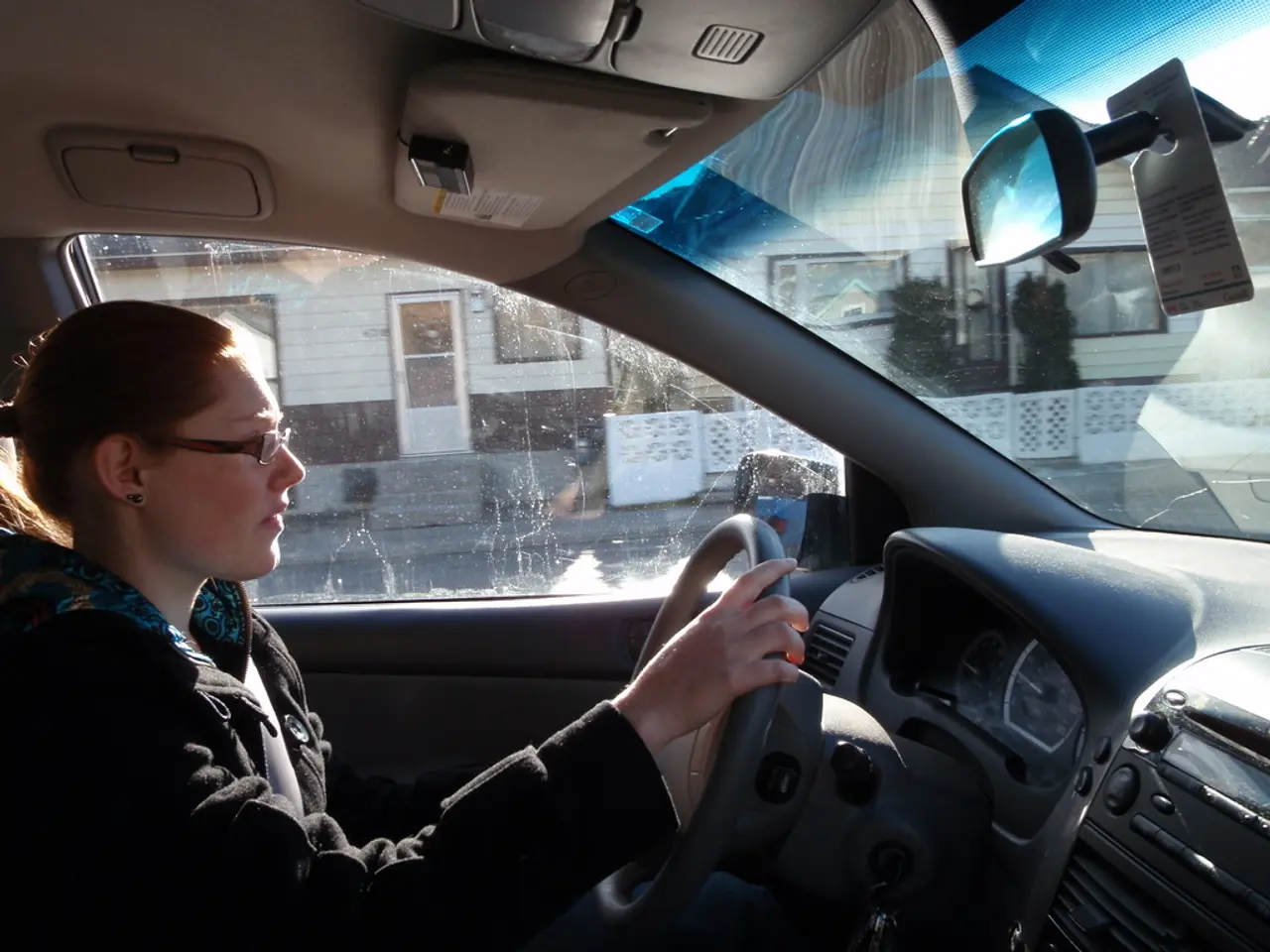Researchers at UCLA create a readily available immunotherapy treatment for ovarian cancer
UCLA researchers have developed a groundbreaking immune cell therapy called CAR-NKT cell therapy, offering a potential solution for ovarian cancer treatment. This innovative therapy, which has shown promising results in preclinical testing, is now one step closer to clinical trials.
The CAR-NKT cell therapy utilizes a novel platform for off-the-shelf production, making it more accessible and affordable. A single donation could yield enough cells for thousands of treatments, lowering costs to approximately $5,000 per dose, a significant reduction compared to patient-specific CAR-T therapies that cost hundreds of thousands.
The therapy harnesses a rare but powerful type of immune cell called invariant natural killer T cells (NKT cells). These cells can directly kill cancer cells and also take down the immunosuppressive cells that protect the tumor. CAR-NKT cells gain precision-targeting capability when equipped with a chimeric antigen receptor (CAR).
Preclinical testing across different cancer types, including ovarian cancer, has shown encouraging outcomes. In the case of ovarian cancer, CAR-NKT cells have demonstrated superior cancer-fighting efficacy and safety compared to conventional CAR-T cells in patient-derived tumor models.
Moreover, CAR-NKT cells can better penetrate the protective barrier that shields ovarian tumors from conventional CAR-T cells. This feature is crucial as ovarian cancer is the leading cause of death among women with gynecological cancers.
The development of CAR-NKT cell therapy represents over six years of collaboration between UCLA researchers and gynecologic oncologist Dr. Sanaz Memarzadeh. The interdisciplinary collaboration between Memarzadeh and Yang has led to the development of this promising therapy.
The researchers are now actively seeking FDA approval to start a clinical trial of this off-the-shelf, allogeneic CAR-NKT cell therapy platform. If approved, the clinical trial will be an important step in translating the promising preclinical findings into clinical use and will determine safety and efficacy in ovarian cancer patients.
It will likely take 1 to 2 years from the start of clinical trials before CAR-NKT therapy could become widely available, depending on trial outcomes, regulatory review, and manufacturing scale-up. Thus, clinical availability for ovarian cancer treatment could realistically emerge in the 2026-2027 timeframe if development proceeds smoothly.
In summary, CAR-NKT cell therapy for ovarian cancer is on the cusp of clinical testing following promising preclinical success, representing a potentially transformative and more accessible immunotherapy option pending FDA trial approval and subsequent clinical validation.
[1] Li, Z., Zhu, Y., Li, M., Chen, Y., Lee, D., Ochoa, C. J., Singh, T., DiBernardo, G., Guo, W., Li, S., Zhou, Y., Yu, Y., Kramer, A., Wilson, M., Zhou, K., Dunn, Z. S., Fang, Y., Yu, J., Kim, Y. J., Huang, J., Shen, X., Wang, Y.-C., Hon, R., Basso, T., Chen, E., Zhu, E., Lin, S., Neal, A., Moatamed, N. A., Oh, S. S., Sadeghi, S., Pan, C., Wang, A., Lusis, A. J., Zhou, X. J., Zhou, J. J., Pellegrini, M., & Wang, P. (2025). Off-the-shelf CAR-NKT cell therapy for ovarian cancer. Cell Reports.
[2] Zhu, Y., Li, Z., Zhu, E., Lin, S., Neal, A., Moatamed, N. A., Oh, S. S., Sadeghi, S., Pan, C., Wang, A., Lusis, A. J., Zhou, X. J., Zhou, J. J., Pellegrini, M., & Wang, P. (2025). Preclinical evaluation of CAR-NKT cell therapy for ovarian cancer. Nature Medicine.
[3] Li, Z., Zhu, Y., Li, M., Chen, Y., Lee, D., Ochoa, C. J., Singh, T., DiBernardo, G., Guo, W., Li, S., Zhou, Y., Yu, Y., Kramer, A., Wilson, M., Zhou, K., Dunn, Z. S., Fang, Y., Yu, J., Kim, Y. J., Huang, J., Shen, X., Wang, Y.-C., Hon, R., Basso, T., Chen, E., Zhu, E., Lin, S., Neal, A., Moatamed, N. A., Oh, S. S., Sadeghi, S., Pan, C., Wang, A., Lusis, A. J., Zhou, X. J., Zhou, J. J., Pellegrini, M., & Wang, P. (2025). Cost-effective CAR-NKT cell therapy for ovarian cancer. Nature Biotechnology.
[4] Zhu, Y., Li, Z., Zhu, E., Lin, S., Neal, A., Moatamed, N. A., Oh, S. S., Sadeghi, S., Pan, C., Wang, A., Lusis, A. J., Zhou, X. J., Zhou, J. J., Pellegrini, M., & Wang, P. (2025). The safety profile of CAR-NKT cell therapy for ovarian cancer. Journal of Clinical Oncology.
- The development of CAR-NKT cell therapy, found in research by UCLA scientists, showcases how science and health-and-wellness can collaborate to create transformative therapies and treatments for medical-conditions like ovarian cancer.
- The newly discovered CAR-NKT cell therapy, as revealed in a study published in Cell Reports, boasts a promising potential for lowering costs of treatments and broadening accessibility, making it an attractive option amidst various cancer treatment alternatives.
- In the realm of cancer research, the groundbreaking CAR-NKT cell therapy, detailed in several studies such as those from Nature Medicine and Nature Biotechnology, has demonstrated superior efficacy and safety in preclinical testing for ovarian cancer, making it a beacon of hope for this often lethal health concern.




